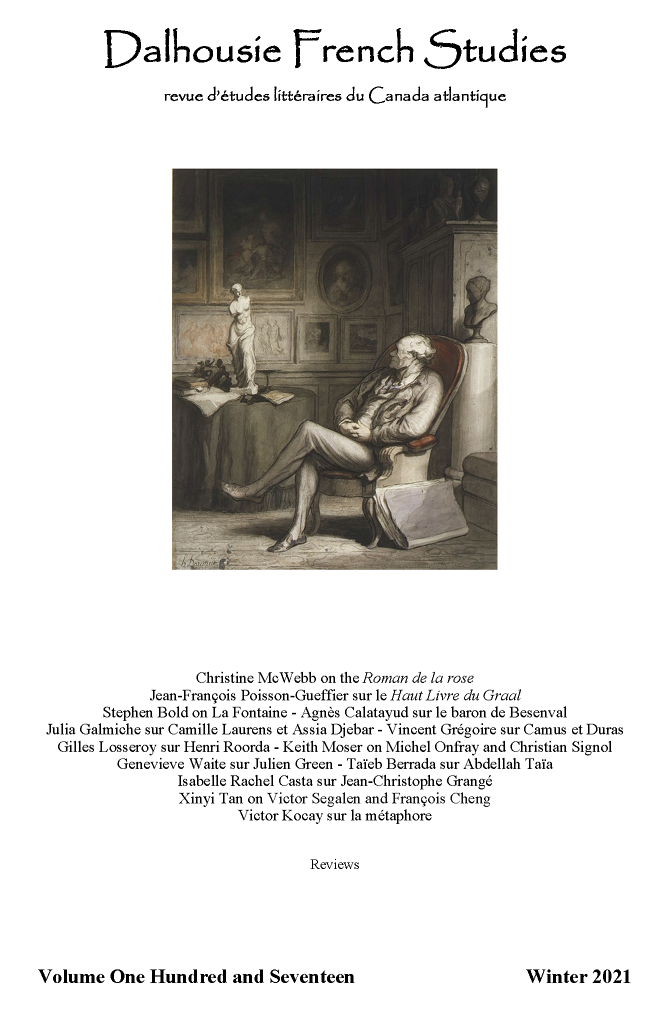A Proustian Reading of Michel Onfray's Cosmos and Christian Signol's Les vrais bonheurs: "Privileged Moments" of Sensorial Ecstasy
Résumé
This study probes the philosophical significance of the strange joy induced by a trigger sensation that immediately strikes the reader in Michel Onfray‘s Cosmos and Christian Signol‘s Les vrais bonheurs. Heavily influenced by Proust‘s vision of involuntary memory, the role of the senses, and the nature of time in A la recherche du temps perdu, Onfray and Signol attempt to explore the essence of everything in the context of powerful, transformative sensorial encounters. Some critics automatically dismiss the rending ecstasy depicted by the Proustian narrator in the “petite madeleine” scene as nothing more than a form of whimsical artistry. However, Onfray and Signol‘s rewriting of this renowned passage demonstrates that the notion of a privileged moment, associated with Proust in French literary circles, is an all-encompassing metaphor for delving into the most fundamental philosophical questions of all.
Cette étude sonde la signification philosophique de la joie étrange induite par une sensation de déclenchement qui frappe immédiatement le lecteur dans Cosmos de Michel Onfray et Les vrais bonheurs de Christian Signol. Fortement influencés par la vision de Proust de la mémoire involontaire, le rôle des sens et la nature du temps dans A la recherche du temps perdu, Onfray et Signol tentent d‘explorer l'essence de tout dans le contexte de rencontres sensorielles puissantes et transformatrices. Certains critiques rejettent automatiquement l'extase décrite par le narrateur proustien dans la scène de la « petite madeleine » comme rien de plus qu‘une forme d'art fantaisiste. Cependant, la réécriture par Onfray et Signol de ce passage renommé démontre que la notion d'un moment privilégié, associée à Proust dans les cercles littéraires français, est une métaphore globale pour approfondir les questions philosophiques les plus fondamentales.


